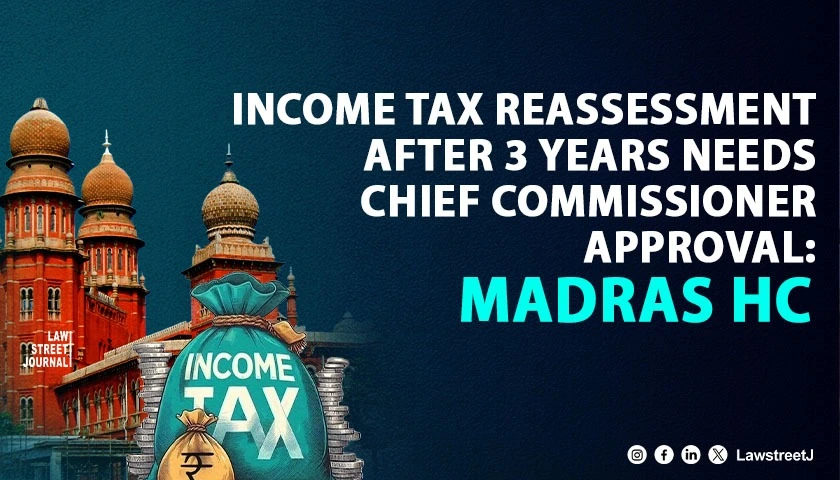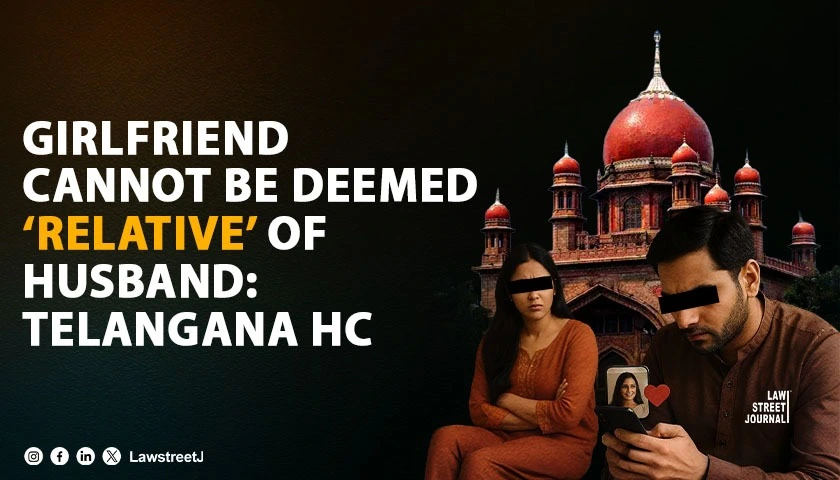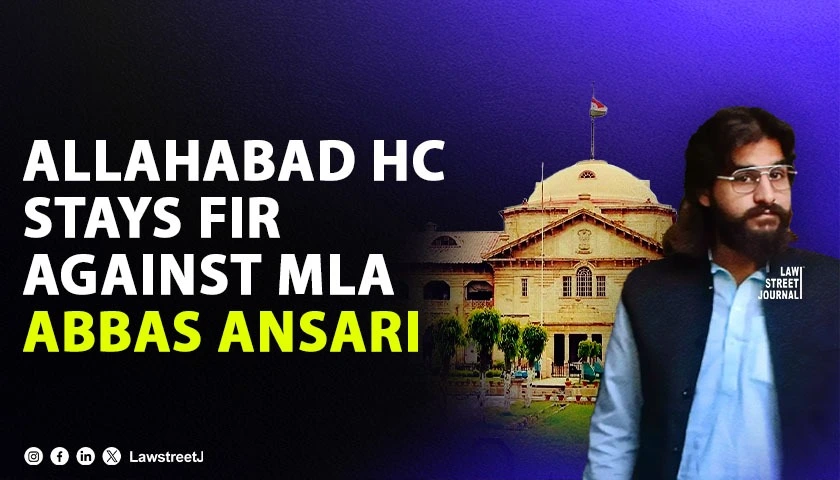Chennai: The Madras High Court has held that under the reassessment regime introduced by the Finance Act, 2021, prior approval from a higher authority — such as the Principal Chief Commissioner of Income Tax or the Principal Director General — is mandatory before issuing a notice under Section 148 of the Income Tax Act after the expiry of the three-year limitation period.
The Court held that the absence of such approval renders the entire proceedings void, being in violation of Section 151 of the Act.
Justice C. Saravanan delivered the judgment on October 28, 2025, in W.P. No. 29108 of 2025, filed by D. Tamilselvi, challenging the reopening of her assessment for the Assessment Year 2017–18.
The petitioner contended that the notice issued on April 1, 2024, was barred by limitation and that the Assessing Officer had failed to obtain the mandatory sanction from the competent authority before initiating reassessment.
The petitioner, a salaried individual, had filed her return which was processed under Section 143(1). The reassessment was triggered based on alleged undisclosed transactions detected through the Income Tax Department’s “Insight” portal. A notice under Section 148A(b) was issued, followed by an order under Section 148A(d).
It was argued that more than six years had passed from the end of the relevant assessment year, making the notice ex facie time-barred under Section 149(1)(a). The petitioner further asserted that the extended limitation under Section 149(1)(b) — applicable only where income escaping assessment exceeds ₹50 lakh and is represented in the form of assets — did not apply in her case.
The respondent contended that the reopening was based on credible information suggesting escapement of income and that approval of the Principal Commissioner of Income Tax had been duly obtained, which, according to them, was sufficient compliance under Section 151.
However, the Court noted that under the post-2021 regime, the specified authority in cases where more than three years have elapsed is not the Principal Commissioner but the Principal Chief Commissioner or the Principal Director General.
Justice Saravanan examined the scheme of Sections 147 to 151 and observed that the 2021 amendments introduced procedural safeguards to balance the powers of the Revenue with taxpayer rights. The Court noted that reassessment beyond three years is permissible only upon credible information indicating escapement of income exceeding ₹50 lakh represented in the form of assets, and only with sanction from the highest authority in the department.
The Court remarked, “The legislative intent is clear. The dual safeguards of credible information and prior sanction of the specified authority are meant to prevent arbitrary reassessments. Any deviation from the statutory prescription would render the proceedings non est in law.” It held that the notice had been issued without approval from the competent authority, making it without jurisdiction.
The Court further held that the extended limitation under Section 149(1)(b) was wrongly invoked, as the Assessing Officer failed to establish that the escaped income exceeded ₹50 lakh or was represented in the form of assets. “In the absence of satisfaction on these jurisdictional facts, the invocation of Section 149(1)(b) cannot be sustained,” the Bench observed.
Relying on Suman Jeet Agarwal v. ITO (2023 SCC OnLine Del 4095) and Bagaria Properties & Investments Pvt. Ltd. v. Union of India (2023 SCC OnLine Cal 3137), the Court reiterated that approval under Section 151 is a substantive safeguard and not a procedural formality, and must be granted by the proper authority.
Holding that the proceedings were initiated without jurisdiction, the High Court quashed the order passed under Section 148A(d) and all consequential actions. The Court also directed the Central Board of Direct Taxes (CBDT) to issue instructions reiterating the need for strict compliance with the statutory approval mechanism under the amended provisions.
Case Title: D. Tamilselvi v. The Income Tax Officer, Non-Corporate Ward 1(3), Madurai & Ors.
[Read Order]




![TN Medical Council declares change of gender identity of LGBTQIA+ as misconduct [Read Notification]](/secure/uploads/2022/12/lj_5268_5cebb05a-97fb-40fb-8045-25cdf8f4207a.jpg)
![Madras High Court Directs Tamil Nadu Government to Ensure Quota for Transgenders in Local Body Elections [Read Order]](/secure/uploads/2023/08/lj_2507_7a03d113-08b1-4670-b6fb-9058aee481d0.jpg)
![Anti Corruption sleuths acted like "puppets in The Muppet Show", HC notice to ex TN CM in disproportionate assets case [Read Order]](/secure/uploads/2023/09/lj_8675_7b37fc02-1b2d-4f4a-9816-3df20545b37e.jpg)






